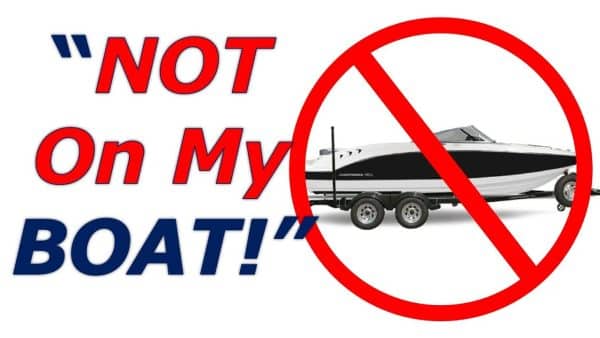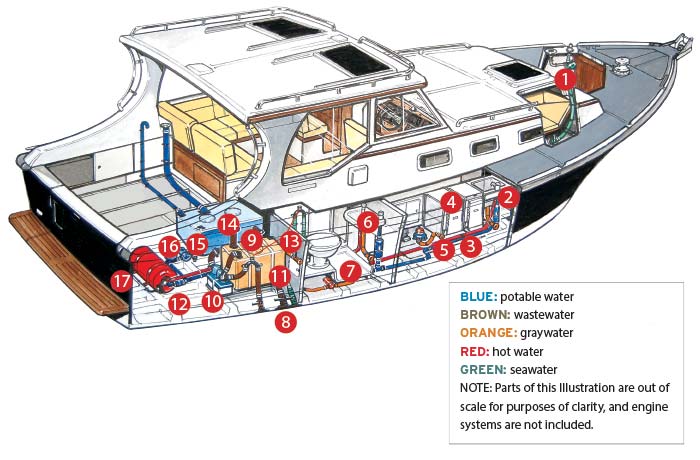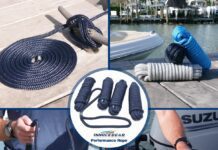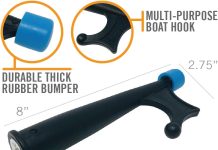Ah, the blissful serenity of setting sail on a boat, basking in the gentle embrace of the sparkling waves, and feeling the freedom of the open sea. But before we embark on this nautical adventure, there are certain items that should be left behind on dry land. From delicate glassware that clinks with every swell, to cumbersome furniture that seems determined to rearrange itself with each rock of the boat, we’ll explore the often overlooked essentials of what not to take on a boat. So, dear fellow seafarers, let us embark on a voyage of wisdom and discover the treasures of a clutter-free sailing experience.
This image is property of www.formulaboats.com.
Safety Hazards
As we embark on any boat journey, safety should always be our top priority. It is crucial to be aware of items that could pose potential safety hazards. Among them, flammable or explosive materials are especially dangerous. Bringing gasoline, kerosene, or other highly flammable substances on board can quickly turn a peaceful voyage into a disaster. It is advisable to always leave these items onshore to prevent accidents that could harm both ourselves and our fellow passengers.
Similarly, open flame devices should be avoided while on a boat. Whether it’s candles, portable stoves, or any other open flame source, using them in the confined space of a boat can rapidly lead to fires. The risk of fire spreading and causing serious damage is significantly higher on a vessel. Thus, we should always prioritize the safety of everyone on board by refraining from using open flame devices.
Another crucial aspect of safety on a boat is the handling of weapons and firearms. While it might be tempting to bring personal firearms for protection, it is strongly advised against. The unpredictable nature of a boat’s conditions and confined spaces can make it exceedingly dangerous to keep firearms on board. A momentary lack of balance or a sudden wave can result in accidental discharge, injuring both ourselves and others. To maintain a safe and enjoyable environment for all, it is best to leave weapons and firearms ashore.
Environmental Concerns
Being responsible stewards of the environment is essential, even when on a boat. One aspect to consider is the usage and disposal of hazardous chemicals. Pesticides, fertilizers, and other chemicals pose a threat to marine life and delicate ecosystems. Bringing such substances on a boat increases the likelihood of accidental spills or leaks, and the consequences can be severe. To protect the environment, it is essential to keep hazardous chemicals away from our boating adventures.
Additionally, pollutants and waste should remain off our boats. Proper waste disposal is crucial, as it can significantly impact marine ecosystems. We must ensure that any trash produced during our journey is properly disposed of on land, in designated garbage and recycling facilities. It is also important to refrain from throwing any objects or debris overboard, as they can harm marine life and contribute to pollution.
Another environmental concern is the introduction of invasive species. These non-native organisms can wreak havoc on local ecosystems and have devastating effects on native flora and fauna. Avoid bringing plants, animals, or any other potentially invasive species onto a boat. By doing so, we can prevent unintended ecological disruptions and preserve the beauty and balance of our natural surroundings.
Animals and Pets
While it can be enjoyable to bring our furry friends along for a boat ride, there are certain considerations to keep in mind. Large or aggressive animals may not be suitable for boating. The limited space on a boat can sometimes create stressful situations for pets, which could result in unpredictable behavior. To ensure the safety and comfort of all passengers, it is best to leave large or aggressive animals ashore.
When it comes to non-aquatic pets, it is important to understand that not all animals are suited for a boating environment. Some pets may struggle with the motion, noise, or confined space of a boat, which can cause unnecessary stress and discomfort. It is advisable to consult with a veterinarian or animal behaviorist before bringing non-aquatic pets on board to ensure their well-being.
If bringing pets on board, it is imperative to use proper restraints. Unrestrained animals pose safety risks not only to themselves but also to other passengers. Dogs, for example, should be secured with a harness or leash to prevent them from accidentally falling overboard or becoming injured during sudden movements of the boat. By following these guidelines, we can enjoy a boat trip with our furry companions while prioritizing their safety.
Unnecessary or Bulky Items
When packing for a boat trip, it is essential to be mindful of the space limitations on board. Bringing excessive furniture or large appliances is impractical, as the limited area of a boat generally cannot accommodate such items. Bulky pieces of furniture or appliances can hinder mobility and make it challenging to move freely around the boat. Packing light and focusing on essential items allows for a more comfortable and enjoyable boating experience.
Similarly, it is advisable to avoid excessive luggage and bags. While it may be tempting to bring multiple suitcases or backpacks, it is important to remember that space on a boat is limited. Carrying excessive luggage not only occupies valuable space but can also create additional safety risks. Loose bags can pose tripping hazards, obstruct visibility, and make movement on the boat more difficult. By packing only the essentials, we can maximize comfort and safety during our boat journey.
Non-essential recreational equipment should also be left behind. While it may be tempting to bring along every water toy, gadget, or sporting equipment, accommodating excessive recreational items may not be feasible on a boat. The focus should be on enjoying the natural surroundings and the experience of being on the water. It is best to prioritize simplicity and take only the equipment that is necessary for our planned activities, ensuring a clutter-free and enjoyable boating adventure.
This image is property of i.ytimg.com.
Valuable or Irreplaceable Items
As we embark on a boat trip, we should be cautious about carrying valuable or irreplaceable items on board. Expensive jewelry and other valuables can be a target for theft, but they can also be easily lost or damaged in the water. The risk of losing items overboard or misplacing them in the confined space of a boat is ever-present. To avoid unnecessary stress and potential heartache, it is best to leave expensive jewelry and valuables safely secured onshore.
Original documents, such as passports, should also remain on land unless necessary. While it is always advised to carry identification, it is generally safer to keep original documents stored securely in a designated place onshore. In the event of an unexpected incident, it is easier to replace lost or damaged documents when they are not aboard a boat. Carrying photocopies or digital copies of important papers can still provide vital information if needed.
Family heirlooms carry sentimental value that cannot be replaced. It is wise to leave these cherished items safely at home. The risk of loss or damage increases significantly while on a boat due to the potential for unpredictable water conditions, accidental drops, or theft. By leaving irreplaceable family heirlooms behind, we can ensure they remain safe and preserved for future generations to appreciate.
Limited Resources
Boat trips often involve being away from shore for extended periods, so it is crucial to consider the limited resources available on board. Bringing excessive amounts of food and drink is unnecessary and can lead to waste. It is important to plan meals and provisions thoughtfully, considering the duration of the trip and the number of passengers. By avoiding excessive amounts, we can minimize food spoilage and reduce the risk of attracting unwanted pests on the boat.
Moreover, all water brought on a boat should be potable and sealed properly. It is essential to rely on sealed containers to prevent water contamination. Drinking water that is not properly sealed can pose health risks due to potential exposure to bacteria, viruses, or chemicals. Ensuring the safety of the drinking water supply is vital to maintaining good health throughout the journey.
This image is property of northernontario.travel.
Items that Require External Services
While on a boat, it’s crucial to be self-reliant when it comes to necessary services. Items requiring electricity can be problematic due to the limited availability of power sources on board. Bringing appliances or devices that heavily rely on electricity can quickly drain the boat’s batteries, leaving us without essential power. It is advisable to prioritize devices with long-lasting battery life or consider alternative power sources, such as portable solar panels.
Similarly, items requiring internet access should be left behind or minimized. Boat trips are an opportunity to disconnect from the digital world and embrace the beauty of nature. While some boats may offer limited internet connectivity, it is best to limit internet usage and focus on enjoying the present moment and the company of fellow passengers.
Items requiring extensive maintenance should also be reconsidered before bringing them on a boat. The confined space and limited resources make it challenging to properly maintain certain items while at sea. Complex machinery or equipment that demands constant attention may distract from the enjoyment of the journey. To ensure a stress-free experience, it is best to leave such items ashore or choose simpler alternatives for boating activities.
Delicate Electronics and Equipment
During a boat trip, it’s important to protect delicate electronics and equipment from potential damage. Sensitive cameras and photography equipment are vulnerable to water and shock damage. The risk of accidental splashes or drops can have long-lasting consequences on expensive equipment. It is advisable to invest in protective cases and ensure proper storage of delicate electronics to prevent any unfortunate accidents.
Fragile electronic devices, such as smartphones or tablets, should also be handled with care on a boat. The combination of water, motion, and potential falls can easily result in irreparable damage. Keeping these devices in waterproof and shockproof cases can provide an extra layer of protection. Additionally, considering the use of dedicated waterproof pouches or bags when using electronic devices near water can safeguard against accidents.
Easily damaged sports equipment, such as surfboards, paddleboards, or fishing gear, should be used with caution on a boat. While it is tempting to bring these items for additional recreational activities, their size and fragile nature make them vulnerable to damage. The limited storage space and potential for movement on a boat may not adequately protect these valuable items. To avoid unnecessary repairs or replacements, it is best to carefully consider whether it is worth the risk of bringing them along.
This image is property of cruisingsea.com.
Excessive Clothing and Accessories
When packing for a boat trip, it’s crucial to pack efficiently and avoid excessive clothing and accessories. Unsuitable clothing for water activities can pose safety risks. Loose or heavy clothing items can restrict movement and become entangled in equipment or rigging. It is best to opt for lightweight, comfortable clothing that allows for freedom of movement and dries quickly when wet. Additionally, considering the weather conditions and packing accordingly ensures a comfortable and enjoyable boating experience.
While it is essential to have appropriate attire, bringing multiple sets of formal wear is unnecessary. The casual nature of boating generally does not require formal clothing. Packing one or two sets of formal wear at most is sufficient for any unexpected occasions that may arise during the trip. By minimizing formal wear, we can maximize the available space on board for more practical and comfortable items.
Choosing a reasonable number of shoes is also important when packing for a boat trip. It is advisable to bring only a few pairs of shoes that suit the activities planned. Multiple sets of shoes can take up valuable space, hindering mobility and storage options on the boat. Packing shoes that are comfortable, non-slip, and suitable for water activities ensures safety and convenience throughout the journey.
Illegal or Prohibited Items
While it may seem obvious, it is crucial to reiterate that certain items should never be brought on a boat due to legal and safety concerns. Drugs and illegal substances are strictly prohibited and can lead to severe legal consequences. Furthermore, the usage of illegal substances can impair judgment, increasing the risk of accidents and endangering all passengers. To ensure the safety and legality of the journey, it is vital to comply with all local laws and regulations regarding controlled substances.
Bringing counterfeit goods on board is not only illegal but also unethical. Counterfeit items undermine intellectual property rights and contribute to the proliferation of illegal practices. It is essential to respect copyright and trademark laws by avoiding the possession or transport of counterfeit goods. By acting responsibly, we can play our part in supporting legitimate businesses and preserving the integrity of the brands we cherish.
Lastly, it is crucial to comply with all local laws and regulations regarding items contravening local regulations. Each region may have specific rules and restrictions, such as bans on certain fishing equipment, restricted areas, or limitations on the transport of endangered species. Being aware of and respecting these regulations ensures a harmonious relationship with local authorities and protects the environment for future generations to enjoy.
By consciously considering the safety, environmental impact, and practicality of the items we bring on board, we can enhance the overall experience of our boat journeys. Prioritizing safety, reducing our environmental footprint, and being respectful of the limited space available enable us to enjoy the beauty of the water while preserving it for future generations. So, before setting sail, let’s pack thoughtfully and embark on memorable boating adventures that leave nothing but wonderful memories behind.
This image is property of www.boatus.com.








































